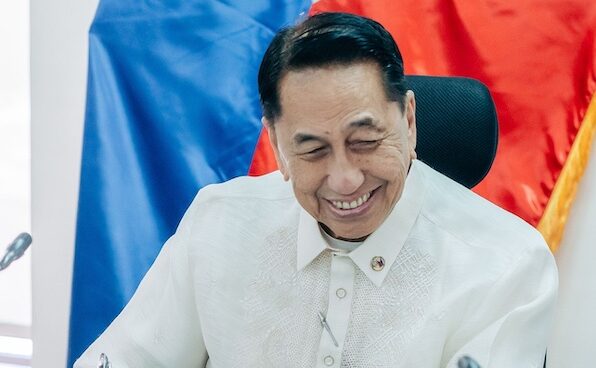The largest group of employers in the Philippines said that the state of education in the country has become a cause for concern, citing that one of the major contributors to the problem is the lack of budget allocated by the government to the sector.
“It’s an issue. That’s why we are putting out platforms in education,” Sergio Ortiz-Luis Jr., president of the Employers Confederation of the Philippines (Ecop), told reporters on the sidelines of the 45th National Conference of Employers organized by the group held at The Manila Hotel.
READ: PISA results mirror PH education’s lost days, ‘grave crisis’
The Ecop official said their group can only do so much to alleviate the impact of the worsening state of education on the quality of Filipino workers.
“We have platforms on [jobs] matching and training, that is what we are doing,” he said.
PH state of education
Based on the 2022 Programme for International Student Assessment (Pisa) study published in December of last year, the Philippines ranked almost the same as in 2018, when it first took part in the assessment.
The 2022 edition of the study, which covered 690,000 students from 81 countries, saw the Philippines ranked sixth to the last in reading and mathematics while ranking third to the last in science.
The Philippines also ranks at the bottom of the new Pisa test on creative thinking, scoring the lowest among the 64 ranked countries in the report.
Asked what he thinks is wrong with the country’s education sector, the Ecop official said that it had long been neglected by the government.
“For example, in the past we were ahead when it comes to English. But today, Thailand and Malaysia are already ahead of us. In Mathematics, we are moving further and further away,” Ortiz-Luis said.
“Basically, it’s about the budget. They are not putting enough,” he lamented, citing that the allocated amount by the government is simply not enough to sustain the vital sector.
Education secretary resignation
As for the decision of Vice President Sara Duterte to step down as secretary of the Department of Education, he said that was “a loss.”
“She was able to do things that other Cabinet secretaries would not have been able to get done, like changing the timeframe,” he said, referring to the return to the old academic calendar.
Duterte, Marcos’ running mate in the 2022 presidential elections, resigned as education secretary on June 19, according to a statement released by Malacañang on the same day.
Ortiz-Luis added that Duterte’s replacement as education secretary does not need to come from the academe, but noted that the replacement must have “varied experiences.”
“[That person] must have the business acumen and [experience in] handling a bureaucracy,” he said.
He acknowledged talk that Trade Secretary Alfredo Pascual was one of the strong contenders for the position, given his stint as president of the University of the Philippines (UP) for six years.
“To me, Secretary Pascual would be a good [education secretary]. But that will be a loss for the DTI (Department of Trade and Industry),” he said.
Pascual is the 20th president of UP and assumed the position in February of 2011.
The trade chief also lists himself as an educator, having spent nine years as the American Express Foundation Professor of Financial Management at the Asian Institute of Management.
Early in his career, he also taught at the UP’s Department of Chemistry for about a year in the 1960s. From 1973 to 1978, he also taught at the Ateneo de Manila University. INQ


